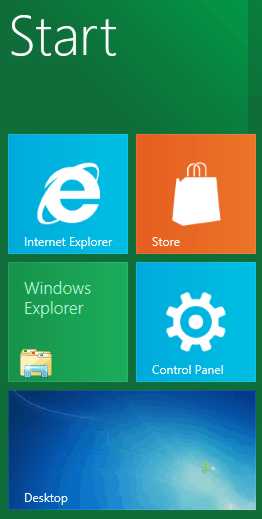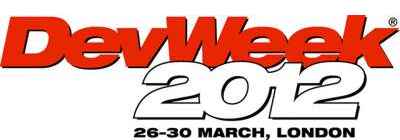| Windows 8 at DevWeek 2012 |
| Tuesday, 28 February 2012 | ||||
Page 1 of 3 With Windows 8 Consumer Preview about to be available we ask "Is Windows 8 really the big new thing?" and look forward to the DevWeek 2012 Conference which opens on March 27th. DevWeek has always been at the cutting edge of technology. So it's hardly surprising that this year a main focus, and the one that is bound to cause the most buzz around the conference hall, is Windows 8, Metro and WinRT.
I Programmer talks to Dave Wheeler, one of DevWeek's most prominent speakers, about the impact Windows 8 and the changes it will mean for .NET developers. "Is Windows 8 really "the big new thing"? DW: Windows 8 is quite simply the biggest thing to come out of Microsoft since the announcement of .NET, and possibly since the announcement of Windows itself. How can it not be "the big new thing" for the DevWeek audience that largely comprises people that work closely with either Windows or .NET in some form or other? When the vendor behind those technology stacks announces changes of the scale of those we've seen at the Build conference, and since, then as an industry we have to sit up and pay attention. Many commentators will view Windows 8 as an attempt by Microsoft to play catch up with Apple's dominant position in the tablet computing space. However, the changes in Windows 8 appear to me to be far deeper than some simple knee-jerk reaction to iPhone or iPad; and they appear to pre-date the current rush to tablet computing. I believe that Windows 8 is a truly massive undertaking, overhauling everything from the kernel to the core API model - and boy did we need that - through to supporting whole new user experience stories, embracing cloud computing and providing fundamental support to organisations and business in the face of the challenges raised by increasing consumerization of IT. I think that many commentators, and developers, have condemned Windows 8 too quickly and on the basis of, perhaps, a perfunctory play with the Developer Preview (and that probably in a virtual machine) or watching a few minutes of the Build keynote. They've perhaps been confused by rumours of the "death of .NET" or the fanciful notion that everyone is suddenly expected to learn JavaScript, or HTML, or (heaven forbid) revert to coding in C++. And there is still too much confusion by what is meant when people say Metro, or WinRT, or even "desktop app". Perhaps they feel that some of the early emphasis on, say, touch or on Windows on Arm (WOA) means that Windows 8 has nothing to do with them or their users. That's understandable, but it's only as Microsoft reveals more of Windows 8 that we see that it is far more than a tablet OS with a pretty tile-based UI. There are depths that we are only just beginning to see, and the sheer breadth of the vision is hard to grasp at first sight. Windows 8 is only in preview at the moment. And in a world where many organisations have either recently rolled out, or are still rolling out, Windows 7, then they are understandably unlikely to leap to Windows 8 immediately or even in the near future. But there is an industry-wide, global shift in IT and how we consume it. Windows 8 is a core part of Microsoft's strategy as they respond to, and in many ways drive, that shift. So any developer that has any interest in a long-term career in Windows should certainly be paying close attention to Windows 8 today. So, is Windows 8 the big new thing for DevWeek 2012? Absolutely.
DevWeek is an event that attracts delegates not only from the UK but from Europe and Scandinavia and further afield. What proportion of them do you think will be directly impacted by Windows 8 - and what will their major concerns be. DW: Everyone who currently works on Windows will be impacted by Windows 8, in one way or another, but maybe not immediately. I don't think that everyone needs to stop working on their current applications and suddenly start working on Metro-styled, touch-based user interfaces, for example. It's very easy for a developer working in a particular type of organisation, with a particular approach to IT, to think that Windows 8 has no relevance for them. It's easy to assume, for example, that Windows 8 is targeted only at consumers, not businesses. I think that's a mistake. I would guess that their concerns will range from worries about the future of their investments in, say, .NET to how Windows 8 will impact on where they need to develop their skills. Hopefully, they'll realise that whilst Windows 8 brings fundamental changes to the core of Windows, their existing skills and code will transfer extremely well onto Windows 8.
|
||||
| Last Updated ( Saturday, 01 September 2018 ) |


